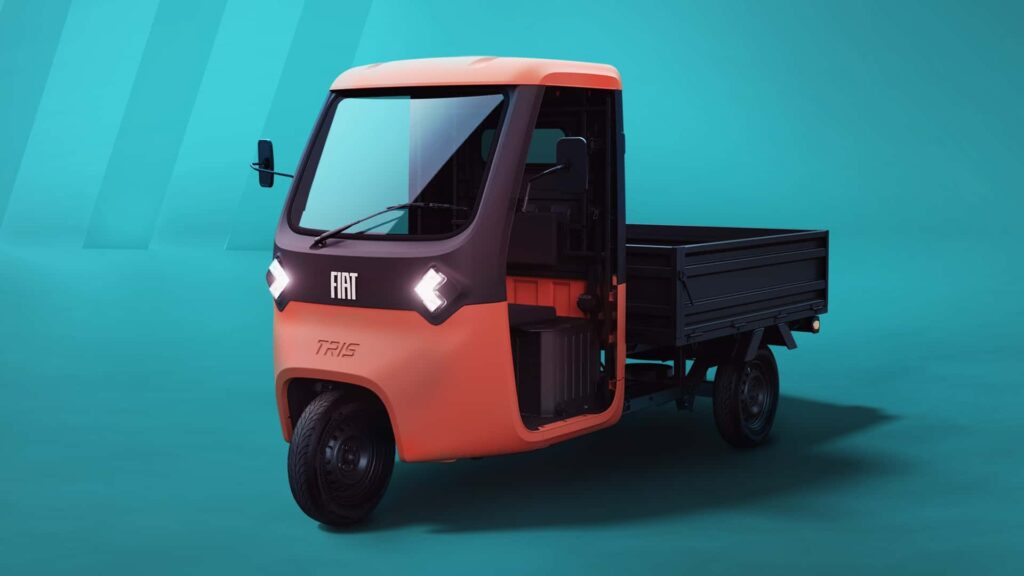Fiat, the Italian automaker known for its affordable and practical vehicles, has introduced its first-ever three-wheeled electric vehicle called the Tris. This unique vehicle is designed to cater to last-mile delivery needs in a cost-effective manner. Unlike traditional electric cars that can be quite expensive, the Tris offers a budget-friendly option for businesses looking to transition to electric vehicles.
The Tris features an integrated charger, allowing it to be easily plugged into any standard 220V outlet for charging. This eliminates the need for expensive charging infrastructure, making it a convenient option for small businesses and delivery services. With a 6.9-kilowatt-hour battery, the Tris offers a range of 56 miles (90 kilometers) on a single charge, making it ideal for short-distance deliveries.
Powered by a 48-volt electric motor, the Tris delivers 12 horsepower (9 kW) and 33 pound-feet (45 Newton-meters) of torque to the rear wheels. While its top speed of 28 miles per hour (45 kilometers per hour) may not be impressive compared to modern EVs, it is more than sufficient for last-mile deliveries and on-site operations. The vehicle also comes equipped with three-point seat belts for safety, eliminating the need for a helmet.
Measuring just 124.8 inches (3.17 m) in length, the Tris may be compact, but it offers a payload capacity of 1,190 pounds (540 kg), making it capable of carrying a Euro pallet in the back. The gross vehicle weight is 2,259 lbs (1,025 kg), ensuring that it can handle a variety of cargo loads.
Inside the Tris, drivers will find a 5.7-inch digital instrument cluster displaying essential information such as speed, distance to empty, and battery level. The cabin also features multiple storage compartments, including a closed glove box on the dashboard for added convenience.
Available in flatbed, pickup, and chassis cab configurations, the Fiat Tris is set to be manufactured in Morocco and initially sold in Africa and the Middle East. Fiat CEO and Stellantis Global Chief Marketing Officer, Olivier Francois, expressed optimism about the Tris’s potential to transform last-mile mobility and promote economic empowerment and social inclusion. The company believes that the Tris’s smart and sustainable design will appeal to a wide range of customers and pave the way for future expansion into the European market.
In conclusion, Fiat’s Tris is a practical and affordable electric vehicle designed to meet the needs of businesses looking for a cost-effective solution for last-mile deliveries. With its compact size, impressive payload capacity, and integrated charging system, the Tris offers a convenient and sustainable option for businesses in need of a reliable delivery vehicle.

